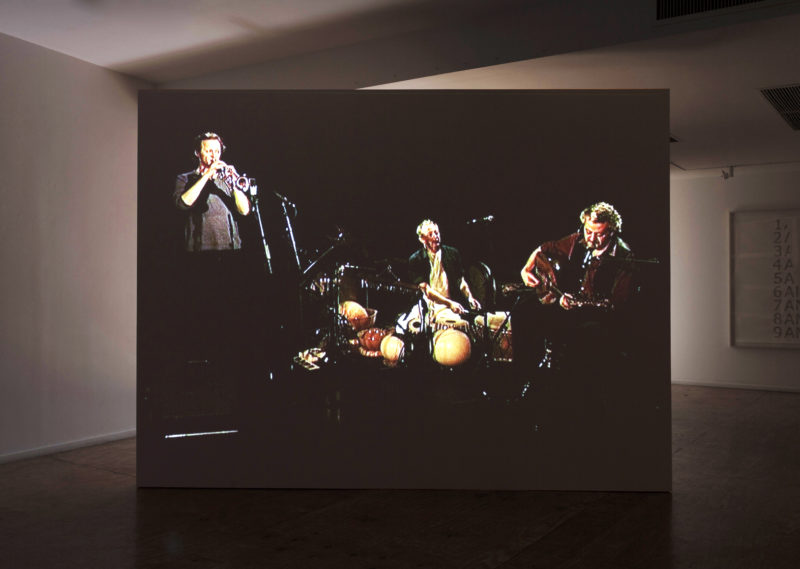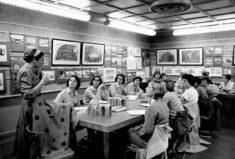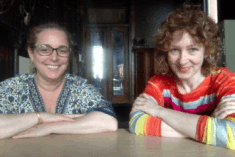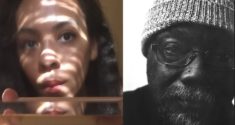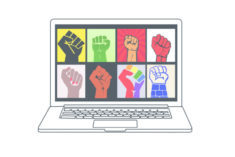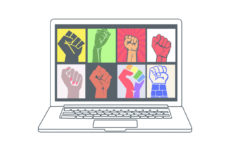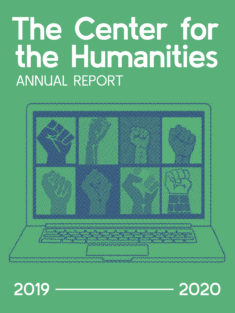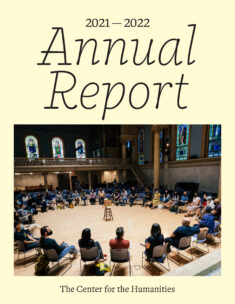About the exhibition
Originally planned to be launched in March 2020, this ongoing research project will culminate in a series of public projects at the James Gallery and with local and international partners from March-September 2022.
With the continued mainstreaming of far-right nationalism, it has become increasingly clear that, as Trinh T. Minh-ha emphasizes, today we are living through an “epoch of global fear.” The post-1989 “victory” of liberal democracy has failed to deliver on its promise of equality, freedom and prosperity for all as feelings of anger and resentment accumulating for many decades have intensified the depth of democratic disenchantment. As Pankaj Mishra writes, "Never have so many free individuals felt so helpless – so desperate to take back control from anyone they can blame for their feeling of having lost it.”
The Racial Imaginary Institute and The James Gallery have collaborated since 2019 to bring together a range of contemporary writers, artists, and thinkers to explore: how can we reimagine the concept of nation itself? What does it mean to belong? And in what ways do we need to rethink who “we” are and who “they” are? Faced with resurgent and terrifying ethnic and racial nationalism around the world, and well-aware of how nations are imagined into existence with real-world consequences, how does culture work with strong feelings of patriotism, whether coming from the right or the left? What is the real-life work of decolonizing representation, focused on Viet Thanh Nguyen’s call for “abolishing the conditions of voicelessness through having the unheard own their share of the means of representation” in a dominant national culture?
Artists involved in this ongoing research include: Black Audio Film Collective, Tara Hart, Maria Hupfield, Emily Jacir, Ajay Kurian, Claudia Rankine and John Lucas, Mercedes Teixido. Lecture by Viet Nguyen in Proshansky Auditorium and performance by Maria Hupfield in The James Gallery. On Nationalism: Borders and Belonging explores various visions of what being a nation could mean and look like in opposition to and in the wake of today’s ongoing racialized nationalism. Furthermore, in response to conditions of heightened polarization and vicious public debate, the project will bring together artists, writers and the public to reflect on the possibilities and challenges of trying to understand the complex experiences and worldviews of individuals and communities with whom they disagree and are largely unfamiliar. Such modes of imagination and conversation will explore how to take a stand for our core values and rights at the same time as holding discomfort and exploring disagreement. As Claudia Rankine asks while speaking to someone with conflicting political views, “how can I say this so that we can stay in this car together, and yet explore the things that I want to explore with you?”
About The Racial Imaginary Institute
Our name “racial imaginary” is meant to capture the enduring truth of race: it is an invented concept that nevertheless operates with extraordinary force in our daily lives, limiting our movements and imaginations. We understand that perceptions, resources, rights, and lives themselves flow along racial lines that confront some of us with restrictions and give others uninterrogated power. These lines are drawn and maintained by white dominance even as individuals and communities alike continually challenge them.
Because no sphere of life is untouched by race, the Institute gathers under its aegis an interdisciplinary range of artists, writers, knowledge-producers, and activists. It convenes a cultural laboratory in which the racial imaginaries of our time and place are engaged, read, countered, contextualized and demystified.
Co-sponsored by Committee for Globalization and Social Change
A companion exhibition will take place at Kordansky Gallery, Los Angeles
